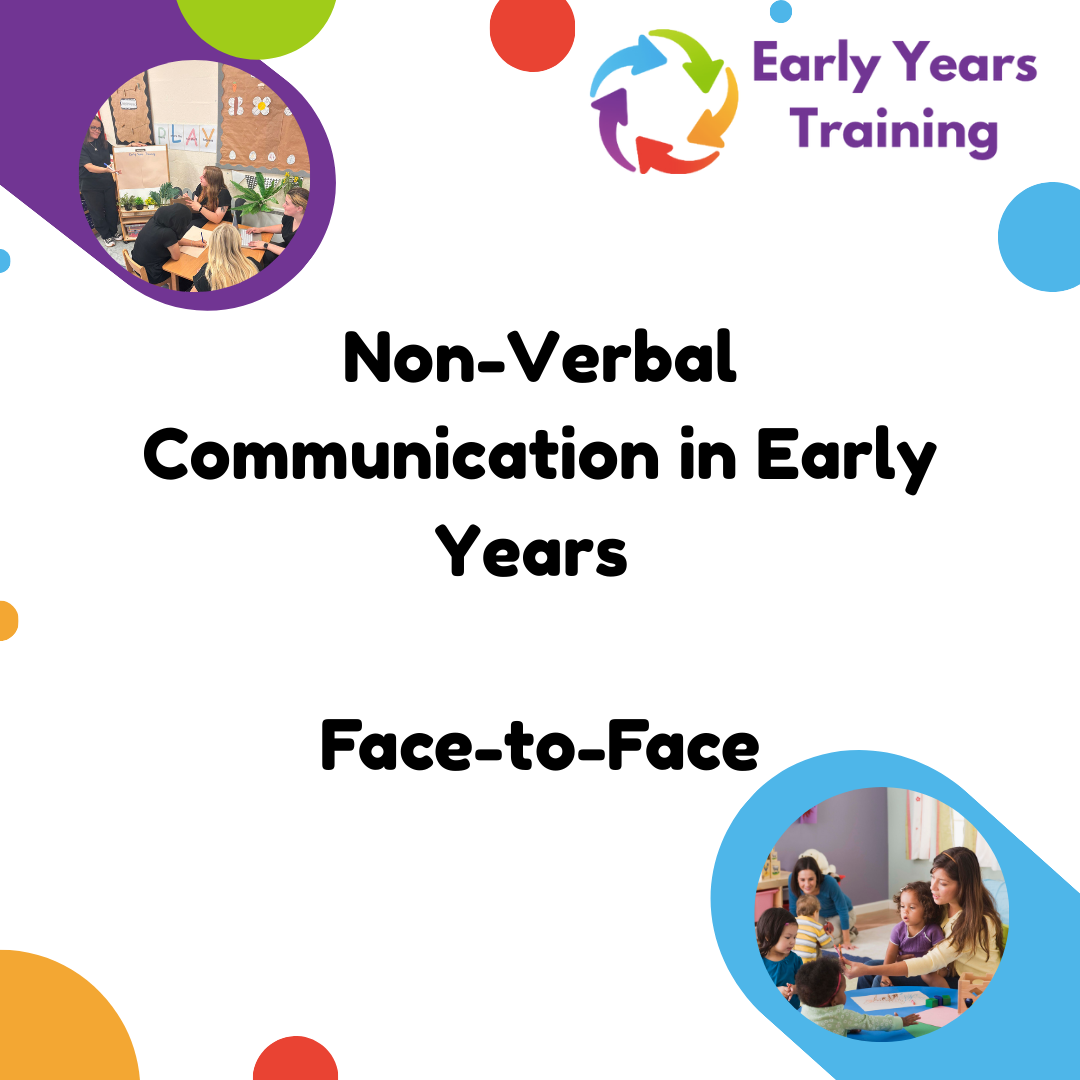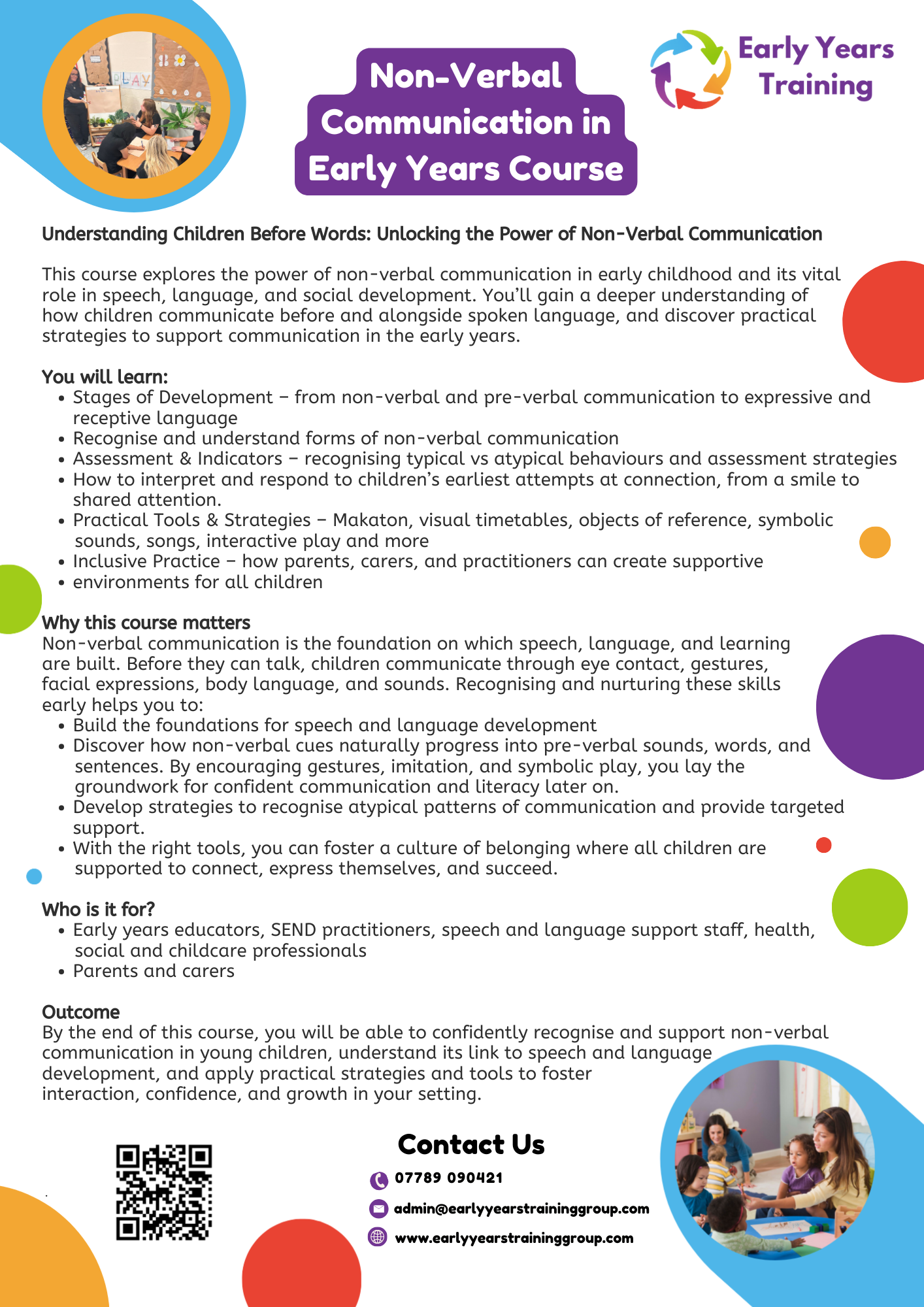Early Years Training Group
Non-Verbal Communication in Early Years - Face-to-Face
Non-Verbal Communication in Early Years - Face-to-Face
Understanding Children Before Words: Unlocking the Power of Non-Verbal Communication
This course explores the power of non-verbal communication in early childhood and its vital role in speech, language, and social development. You’ll gain a deeper understanding of how children communicate before and alongside spoken language, and discover practical strategies to support communication in the early years.
You will learn:
- Stages of Development – from non-verbal and pre-verbal communication to expressive and receptive language
- Recognise and understand forms of non-verbal communication
- Assessment & Indicators – recognising typical vs atypical behaviours and assessment strategies
- How to interpret and respond to children’s earliest attempts at connection, from a smile to shared attention.
- Practical Tools & Strategies – Makaton, visual timetables, objects of reference, symbolic sounds, songs, interactive play and more
- Inclusive Practice – how parents, carers, and practitioners can create supportive environments for all children
Why this course matters
Non-verbal communication is the foundation on which speech, language, and learning are built. Before they can talk, children communicate through eye contact, gestures, facial expressions, body language, and sounds. Recognising and nurturing these skills early helps you to:
- Build the foundations for speech and language development
- Discover how non-verbal cues naturally progress into pre-verbal sounds, words, and sentences. By encouraging gestures, imitation, and symbolic play, you lay the groundwork for confident communication and literacy later on.
- Develop strategies to recognise atypical patterns of communication and provide targeted support.
- With the right tools, you can foster a culture of belonging where all children are supported to connect, express themselves, and succeed.
Who is it for?
- Early years educators
- SEND practitioners
- Speech and language support staff
- Health, social and childcare professionals
- Parents and carers
Outcome
By the end of this course, you will be able to confidently recognise and support non-verbal communication in young children, understand its link to speech and language development, and apply practical strategies and tools to foster interaction, confidence, and growth in your setting.
Share




